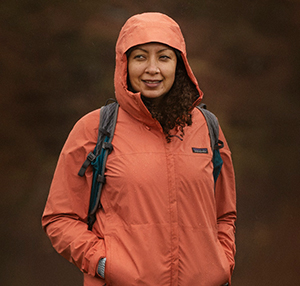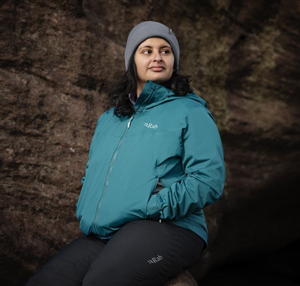Outdoor Voices | Interview with Simon Pitman
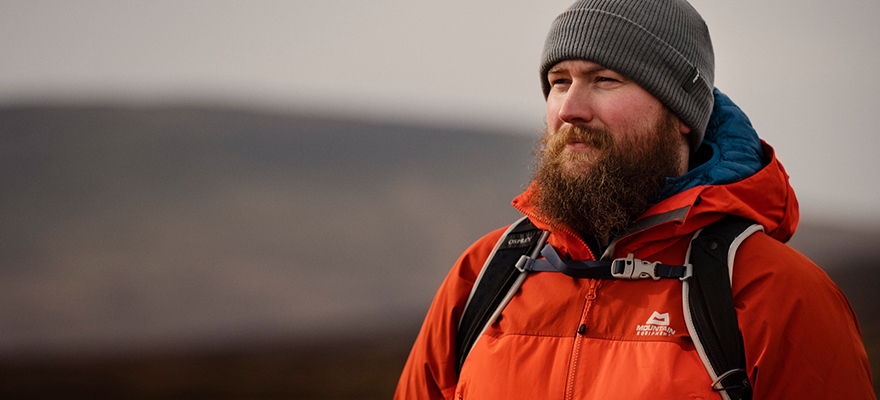
Simon Pitman, manager of Ellis Brigham's Fort William store and Lochaber Mountain Rescue volunteer, shares his thoughts on the importance of safety in the outdoor landscape.
Simon discusses how his role as a mountain rescue volunteer has changed his approach to outdoor safety and communication, and some of the ways we can all become better safety advocates.
Learn more about how we’ve teamed up with Simon to promote the importance of outdoor safety as part of The Accessible Outdoors Guide, in partnership with This Expansive Adventure.
SIMON: “Hi, I'm Simon. I'm a keen mountaineer, skier and lover of all things outdoors. I manage the Ellis Brigham store in Fort William and I also volunteer for Lochaber Mountain Rescue Team.”
EB: “When did your love for the outdoors first start?”
SIMON: “I was lucky enough at school to be able to go on outdoor courses and adventures. So, from ever since I can remember really.
I properly started getting into hills and mountains when I was about 12. I was going to the Lake District and Snowdonia and loved it.”
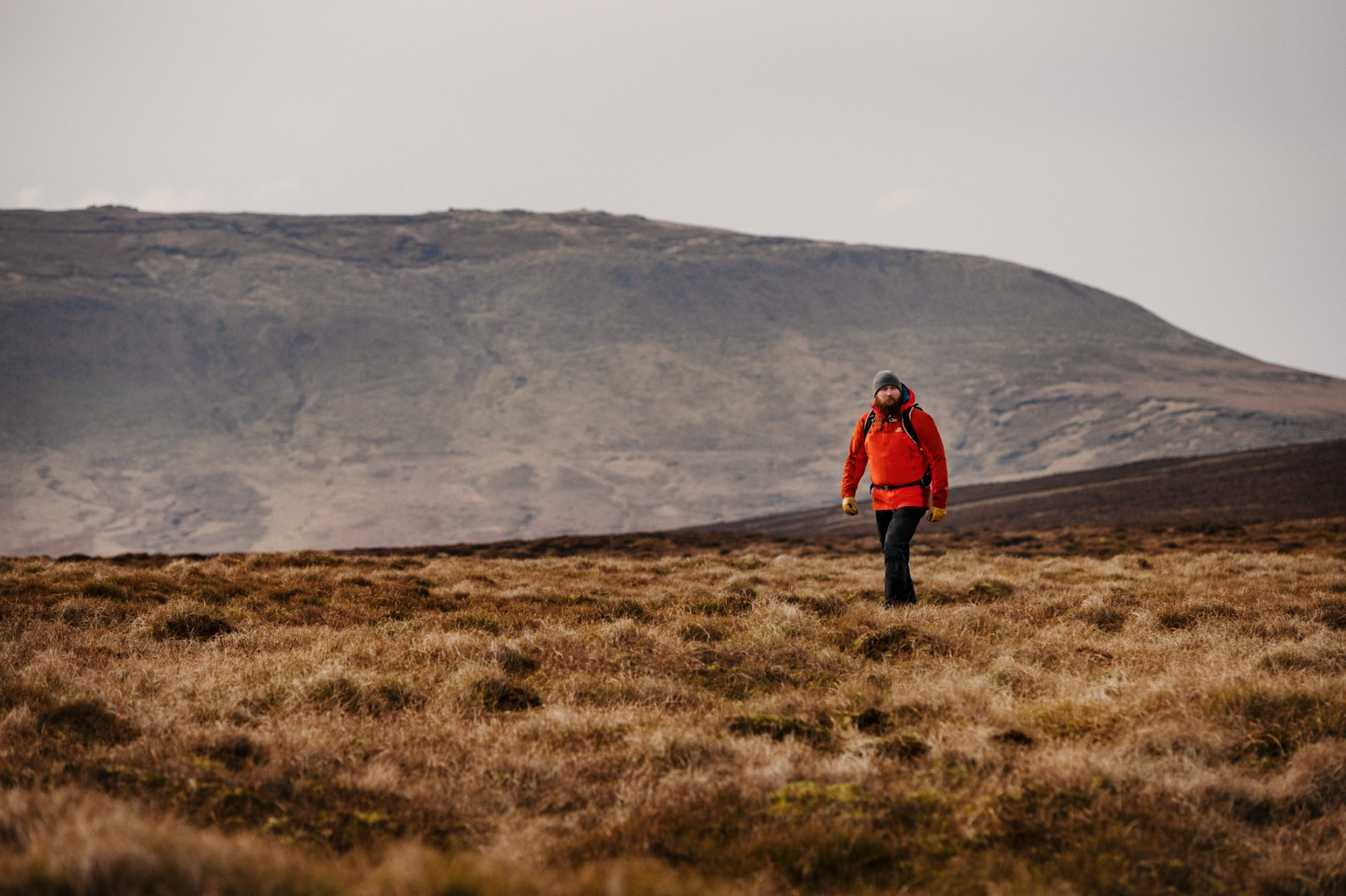
(Photo Credit: This Expansive Adventure)
EB: “How has discovering the outdoors changed your life?”
SIMON: "The outdoors has changed my life in a few key ways because my day job is all about mountaineering kit. I moved from the flatlands of Cambridgeshire to the highlands of Scotland. I've really centered myself around the outdoors and it’s now a key part of my life. Every major decision I've made has centered around being able to get myself outside.”
EB: “What is it like volunteering for Mountain Rescue and what are the responsibilities and potential hardships that may accompany that?”
SIMON: “Volunteering for Mountain Rescue is a fantastic thing and really enjoyable. It isn't centered around being qualified as a mountaineer in the outdoors. It's based on being a competent, independent mountaineer, who is able and willing to go and assist people in need.
We are on the clock 24 hours a day, and we’ll receive texts asking if anybody's available to attend a rescue. You can wake up to a text, or it can be halfway through your working day, asking if you’re able to go and climb Ben Nevis that afternoon. If you’re able to help, then you go. It can be fantastic. It can be exhausting. It can be all of it in one.”
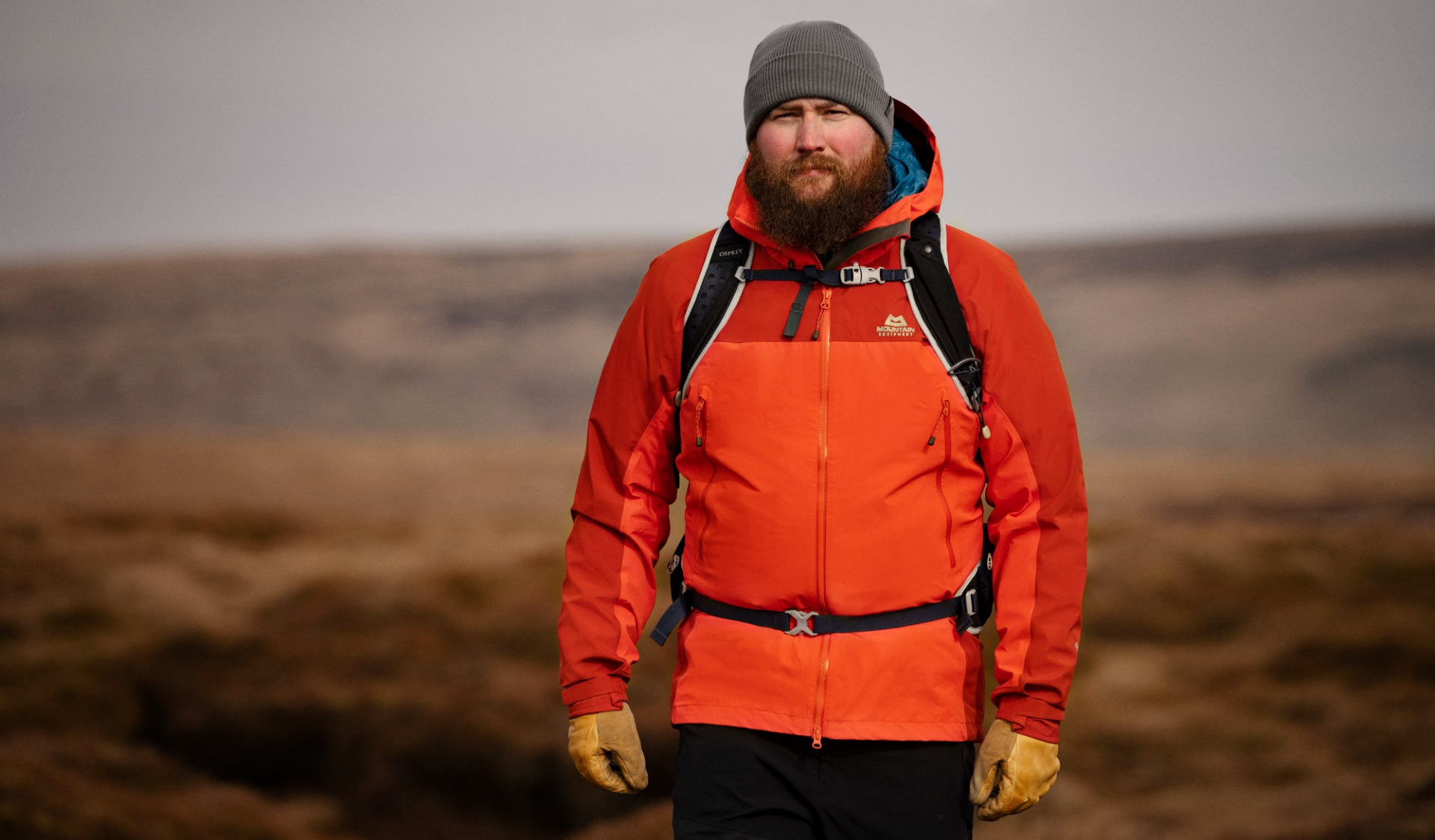
(Photo Credit: This Expansive Adventure)
EB: “What are some of the responsibilities that you have to consider and face?”
SIMON: “The responsibilities are always first to yourself, then to the team, and then the casualty. I'd order it that way because it's really important for us to be able to look after ourselves independently and as a group. This ensures safety at the highest level and means that we can then provide the right assistance to the casualty. This could be anything from simply helping somebody who's just lost and needs help to walk out of somewhere, to somebody who's seriously injured or worse.
The mentality that I try to go into it with, is that the thing that has gone wrong has already gone wrong. And we don't want anything else to go wrong. We need to ensure that safety is at the highest level and that everybody gets back in as good a condition as possible.”
” In the outdoors, safety means to me good communication and a good understanding of risk versus consequence.”
EB: “Are there any potential hardships you find with volunteering for Mountain Rescue?”
SIMON: “First and foremost, I think it's something that is massively enjoyable and rewarding. It can be very tiring adding it into your day-to-day routine. It can just come out of nowhere. When you go on a call out you have no idea how long it's going to go on for. It could be a one-hour job, it could be an all-nighter. You just don't know.
I think the real hardship is balancing it with everything else. A bit of advice that was given to me from more experienced Mountain Rescue team members is that you're not going to make every job and you shouldn’t beat yourself up if you can't make a job. I think you can quite easily feel guilty if you see a text come through, but feel like you’re unable to attend because you have something else you need to do.
We have to remember that our day jobs come first and learn how to balance those two things. And then hopefully, you also know that there are enough volunteers available so you not being there isn't going to be detrimental.
It's so important to just remember, you’re volunteers. It is not a day job. Which, in some ways, makes it easier, in some ways makes it harder.”
EB: “Do you think that would change if you got paid for it?”
SIMON: “I think it would change. But, I don't think I want it to change. A lot of countries have paid mountain rescue, it's a professional thing that goes through health insurance. But I think the way it works now is amazing. I think the systems, we have RNLI and mountain rescue are phenomenal.”
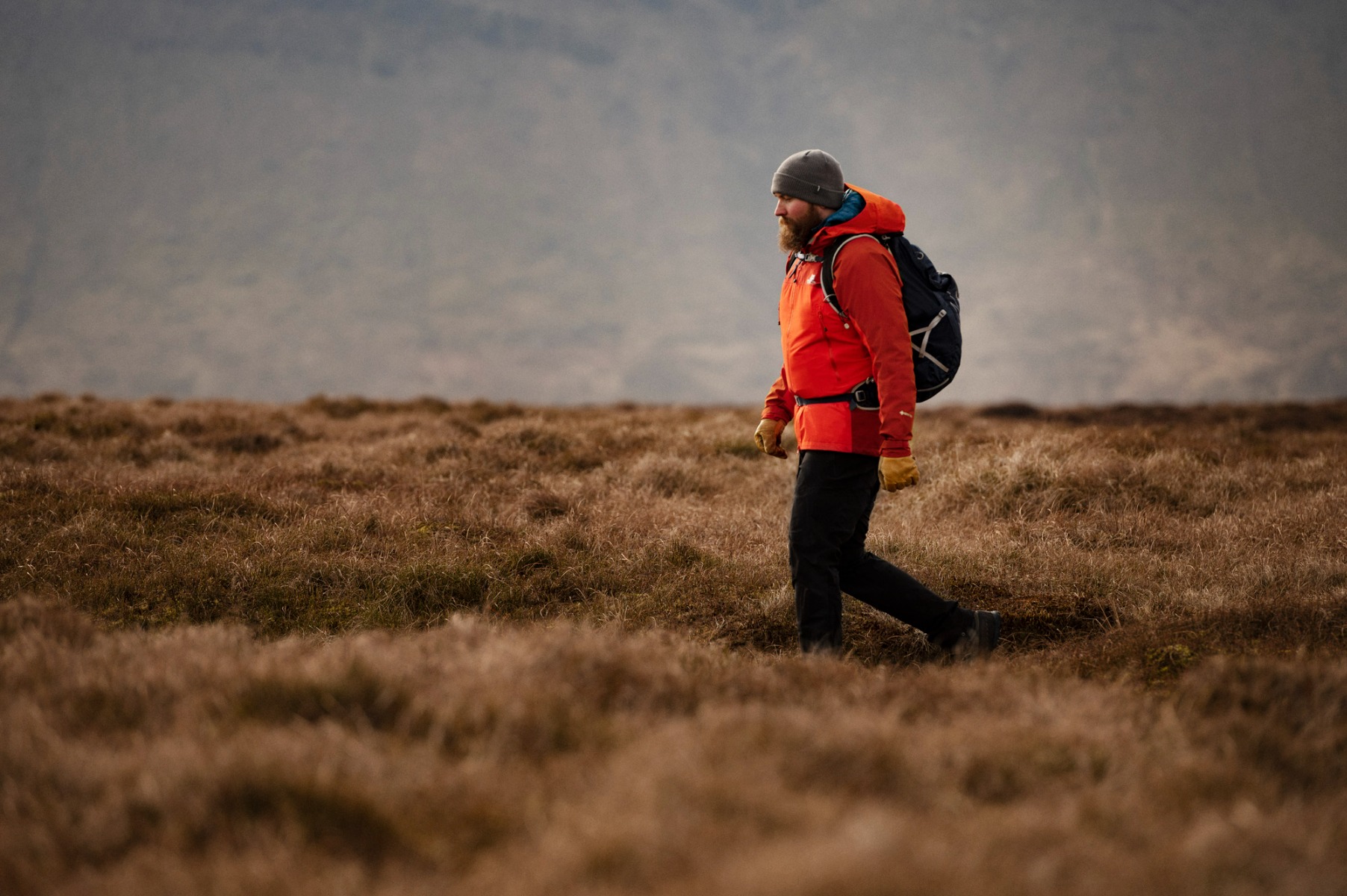
(Photo Credit: This Expansive Adventure)
EB: “How has your opinion of safety in the outdoors changed over time?”
SIMON: “My opinion of safety in the outdoors has definitely changed over time, due to experience of when things go wrong. Either to myself or to people I may not know when I have assisted in rescues.
I don't think my fear level has increased. My decisions haven't necessarily changed. There aren't things I used to do that I now won't do or vice versa. It's more that I feel better educated in how to make safe decisions. But I don't think you can ever know enough.”
EB: “What are some positive changes that you have noticed in recent years in terms of safety or inclusivity in the outdoors?”
SIMON: “The outdoors in general has become a more welcoming environment to those who don't necessarily have the same experience or exposure to it at younger ages. I think that's only a good thing. I think it used to be a case that there was more negativity and shaming on social media that didn't necessarily have a positive effect. For people who are in the know, it's easy to observe somebody doing something wrong. It's even easier if you're anonymous to complain about it online. We've obviously seen that in lots of ways, not just in mountaineering or in the outdoors.
I think people's mindsets are changing with the concept of being more inclusive, whether it be about race or physical ability levels. This can only have a good effect, because if we're more respectful, we're more encouraging, which allows people to get into it in the right way and go through better channels of talking to each other in the outdoors.
It’s about encouraging conversations and casually dropping in "I don't know if I'd go that way because I don't think conditions are great over there at the minute, I'd maybe do this instead." Rather than afterward saying "I can't believe that somebody would have gone there. That's a crazy thing to do!"
EB: “Are there any particular issues that you feel need more visibility and more awareness in terms of safety in the outdoors?”
SIMON: “I think that there needs to be more awareness that everybody can always learn more to be safer. But at the same time respecting and understanding the fact that you're never going to be 100% safe.
Part of the enjoyment is that we are getting outside and you are becoming more exposed to risk at those points. So you're never going to be 100% safe. If you want to go into the outdoors to be 100% safe, then that's the wrong reason and it's not going to work.
Just understanding and embracing that, then going, what can I do to minimise risk? I think that's the most important.
Risk is a part of everyday life. When we go for a drive down the road, we are exposing ourselves to the risk of being on the road. We do some things to minimise those risks, like wearing a seatbelt.
It's not a dissimilar thing that goes on in the outdoors. There are small things that we all do, like wearing walking boots because that gives us better grip and reduces the chance that we're going to roll our ankle.”
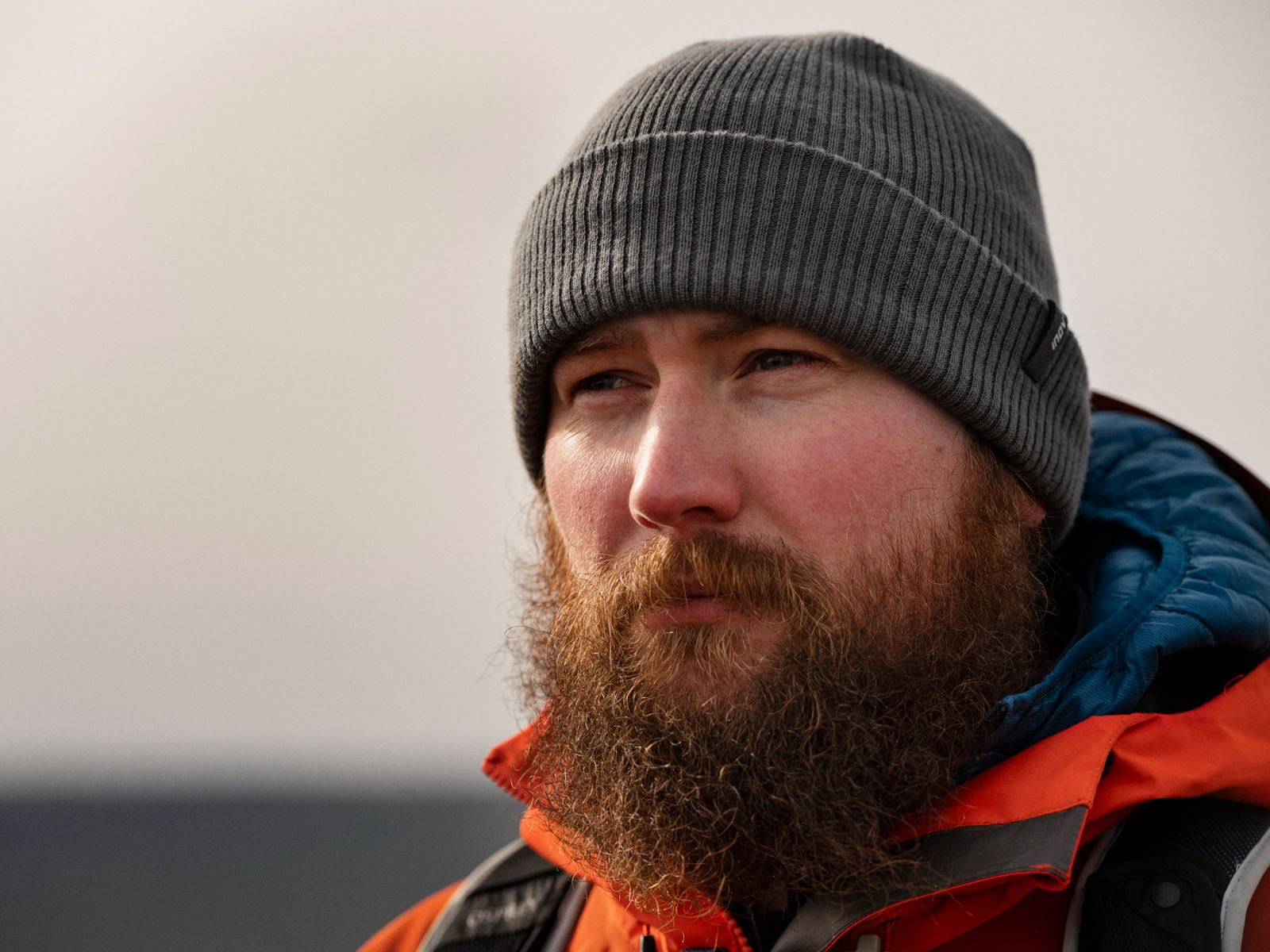
(Photo Credit: This Expansive Adventure)
EB: “Are there any simple ways that someone could minimise the risks on the mountain?”
SIMON: “Learn more. Educate yourself in whatever it may be. Whether it's how to understand mountain weather forecasts, how to read contour lines, how to use ropes and harnesses, how to move on steep technical terrain safely.
Understand that learning never stops. There are a lot of people I know who've been in the outdoors as professionals for 30 years and they're still going on courses every year, they're still trying to get the next level of qualification. Because they don't know enough.”
EB: “Where can people access this type of knowledge and training?”
SIMON: “Courses are everywhere now. There's every level of course you can have. A tailor-made course for one person versus joining a group for a weekend of 20 or 30 people on a course. It's much easier to access those now.
YouTube is a fantastic resource. You can search for anything these days. Different shops and brands around the world have put out content as to how to adjust something correctly, or how to use a piece of equipment correctly. Then there are outdoor athletes and professionals who have their own channels who are doing similar things.
“ Risk versus consequences is all about looking at how likely something is to happen and the consequences if it does. If that thing does happen, what's the result? By embracing those factors we cannot shy away from them."
EB: “What can we all do to become better safety advocates in the outdoors?”
SIMON: “To become better safety advocates, we must communicate better with everyone. Communicate in an engaging, welcoming way. If we see somebody doing something that isn’t ideal or safe, talk to them.
If you feel that you’re not 100% sure as to what we're doing, then don't be afraid to ask someone. Being open to helping people and asking for help, for me is the most important thing.”
The Accessible Outdoors Guide
We believe that the great outdoors is for everyone, without exception.
But concerns about safety, accessibility, or lack of representation can prevent some from fully embracing outdoor adventure. That’s why we’ve partnered with This Expansive Adventure to create The Accessible Outdoors Guide – bringing together leading voices in the outdoor community to break down barriers in Safety, Accessibility and Diversity.
Join us in making outdoor adventure open and accessible to all.



